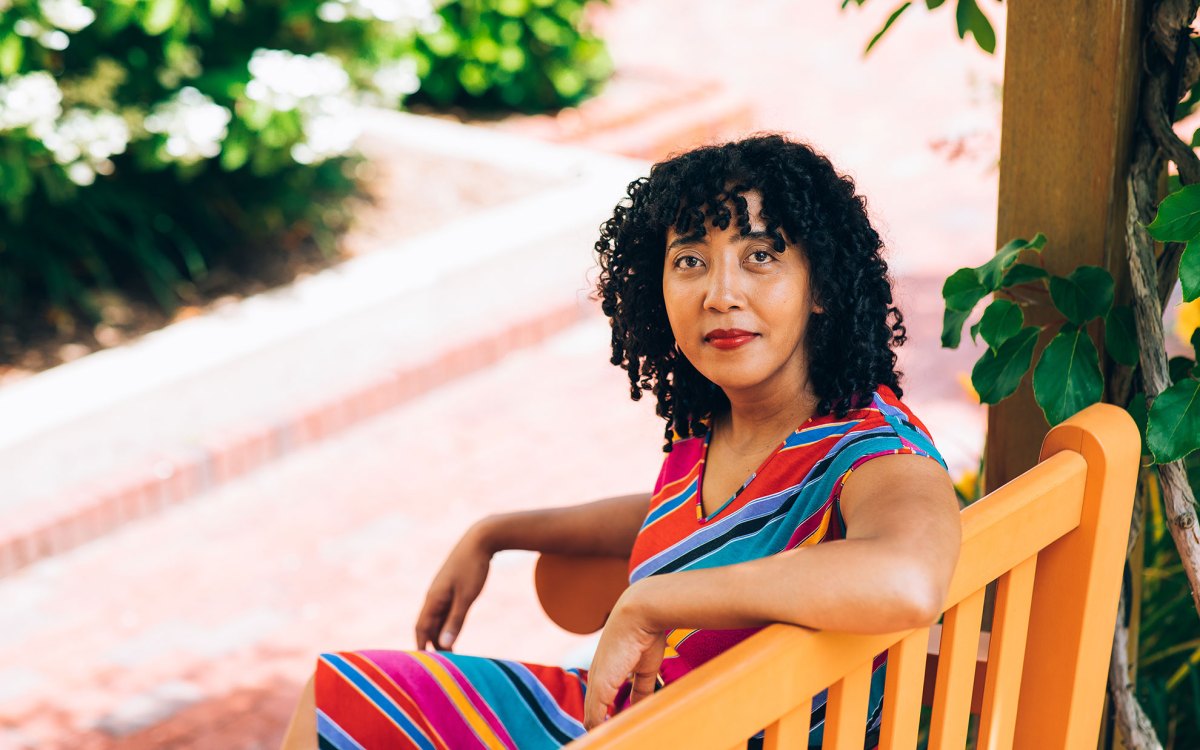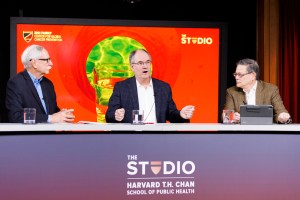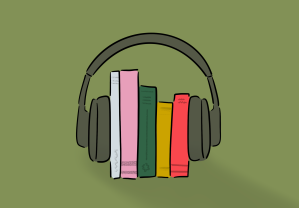Science & Tech
-
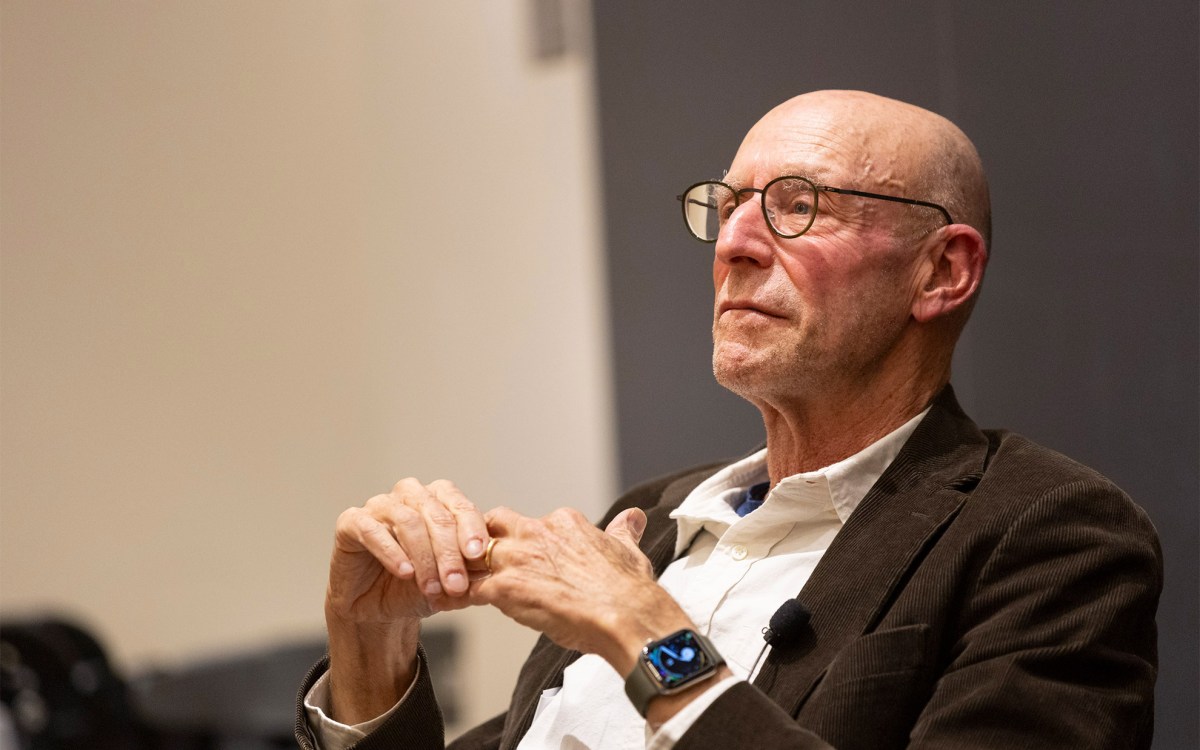
What exactly is consciousness? (And does my Venus flytrap have it too?)
In new book, author Michael Pollan explores nonhuman sentience, stream of thought, AI
-

Can a chatbot be a co-author?
Physicists take souped-up ChatGPT out for a spin, return home with significant discovery

-

Preserving learning in the age of AI shortcuts
In podcast, teachers talk about how they’re using technology to supercharge critical thinking rather than replace it
-

A ‘cocktail’ recipe for brain cells
Stem cell biologists discover how to regenerate type damaged in ALS, spinal cord injuries

-

When you do the math, humans still rule
Harvard’s Lauren Williams, a MacArthur ‘genius,’ joins international effort to challenge notions of AI supremacy
-

‘Imagination’
Less like a picture, more like a video game? Cognitive scientist explains how we ‘see’ what isn’t real.
-
Slow road to stability for emulsions
By studying the behavior of tiny particles at an interface between oil and water, researchers at Harvard have discovered that stabilized emulsions may take longer to reach equilibrium than previously thought.

-
Creative pursuits
Projects on display at the CS 50 Fair ranged from a tool that limits procrastination, to a website that displays longitudinal market capitalization data, to an application that helps with music composition.
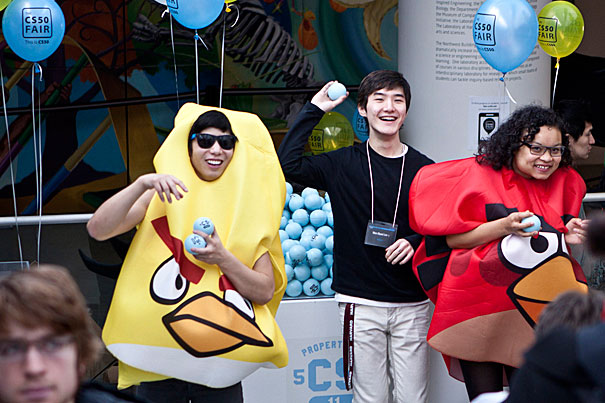
-
When plants may not help
Large-scale increases in forest cover in North America and Eurasia — proposed by some analysts as a way to cut climate change — could hurt the environment by shifting rainfall patterns across the globe, Harvard study says.
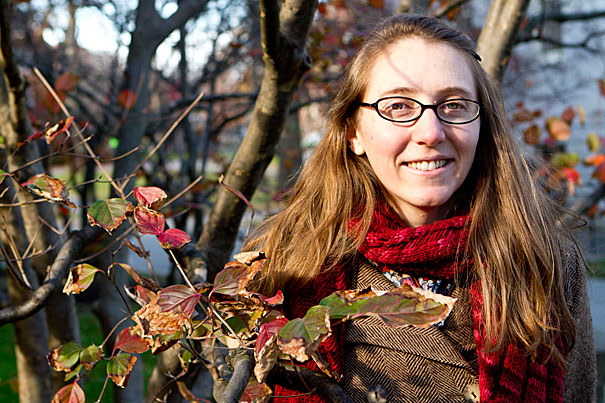
-
Thinking green, and thinking big
At the first Harvard Thinks Green, six Harvard professors gathered at Sanders Theatre to seek big solutions for complex and potentially intractable problems such as climate change.
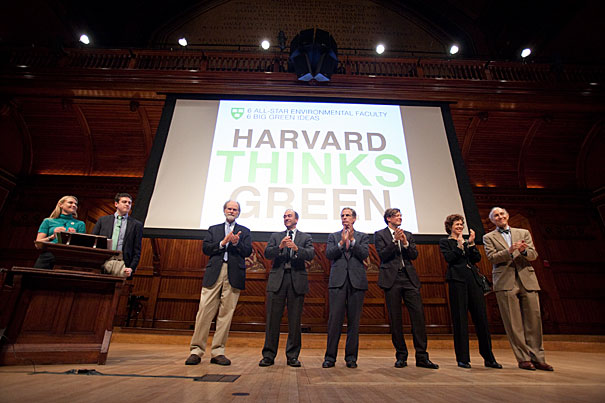
-
Sinking ice and hovering foams
The annual Science & Cooking Fair shows off students’ final projects from the undergraduate General Education course “Science & Cooking: From Haute Cuisine to the Science of Soft Matter.”
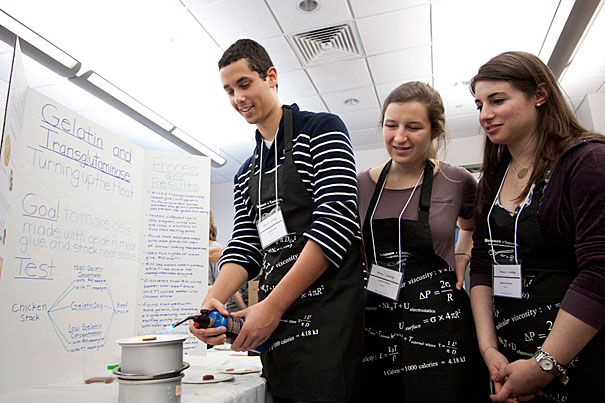
-
Scaling a mountain of trash
With half of U.S. trash still going into landfills, discussions are ongoing about how to handle the nation’s waste, with recycling, composting, incineration, and reuse all part of the mix, says Samantha MacBride, who studies such issues.
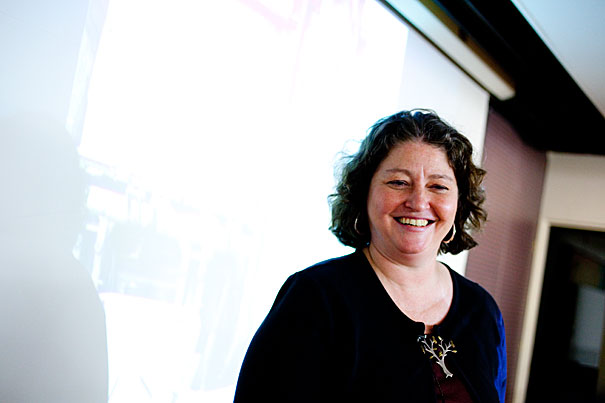
-
Optimism on solar energy
Energy Secretary Steven Chu says China has “Henry Ford-ed” the U.S. solar industry, building a global empire on advances made in the U.S.
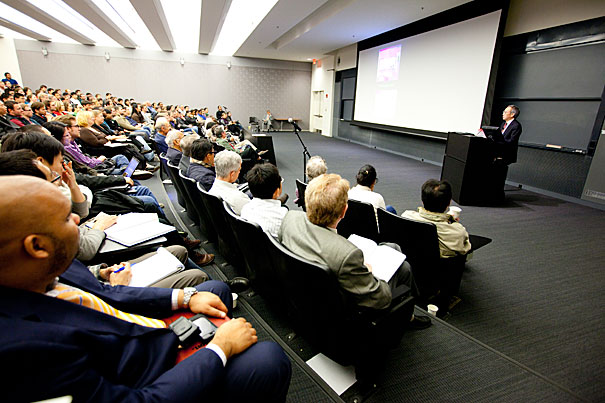
-
Powerful telescope has scientists seeing red
In the distant reaches of the universe, almost 13 billion light-years from Earth, a strange species of galaxy lay hidden. Cloaked in dust and dimmed by the intervening distance, even the Hubble Space Telescope couldn’t spy it. It took the revealing power of NASA’s Spitzer Space Telescope to uncover not one, but four remarkably red galaxies.

-
A vote for more natural gas
James Hackett, chairman and chief executive officer of the Anadarko Petroleum Corp., described an energy future driven by new, abundant supplies of natural gas. He spoke during a Future of Energy talk sponsored by the Harvard University Center for the Environment.
-
A building block for GPS
A professor emeritus of physics who died recently at 96, Norman Ramsey laid the foundation for the atomic clock, which allows scientists to measure time more precisely than ever, and is a critical component in GPS.
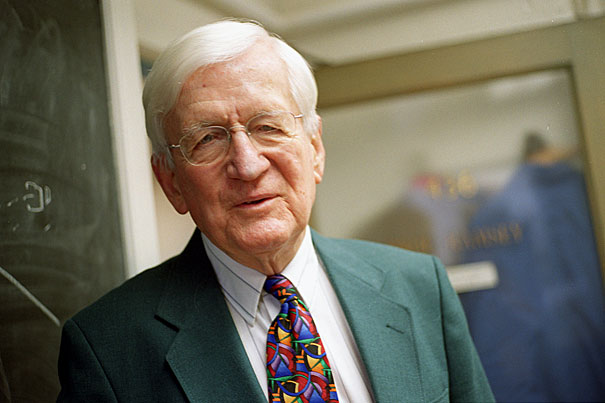
-
Imaging instruction
Harvard researchers have developed a “primer” to identify some of the most useful probes for super-resolution imaging. As described recently on Nature Methods’ website, the work also identified the key characteristics that are important for imaging, giving researchers a framework for evaluating other probes, or even designing custom-made molecules to use in imaging.
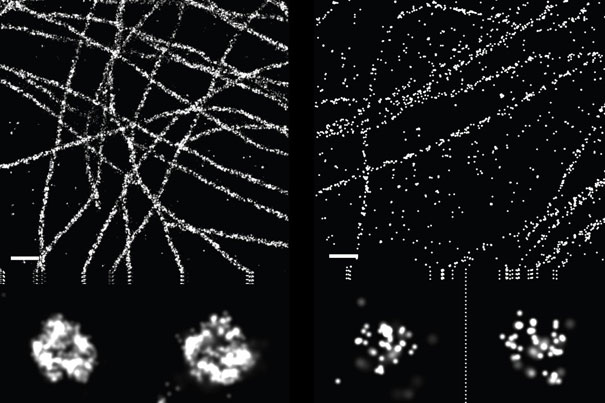
-
A road map to cleaner energy
A new report by the Harvard Kennedy School’s Belfer Center for Science and International Affairs recommends transforming the U.S. energy picture by nearly doubling funding for U.S. energy technology research and instituting incentives for adopting cleaner technologies, such as a cap-and-trade program for carbon emissions.

-
From marsh to Yard
Students digging in Harvard Yard uncovered a major feature in the final days before the site had to be filled: a stone-lined trench that likely began the conversion of the marshy area to the high and dry land of today.
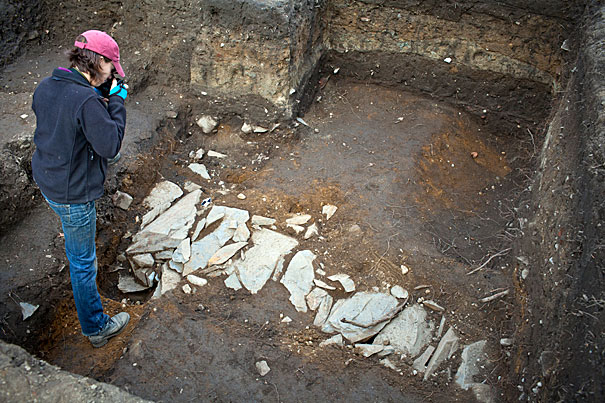
-
Where wild food matters
A postdoctoral fellow at Harvard’s Center for the Environment, Christopher Golden, is the lead author of a paper. It says that in societies where people rely on bush meat for important micronutrients, people’s lost access to wildlife could hurt children’s health
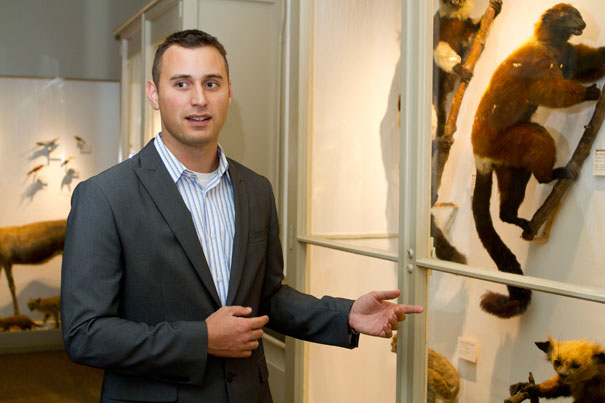
-
Neurons in youth
A group of researchers is working to map how the brain is wired in an effort to pinpoint the causes of — and potential treatments for — schizophrenia, autism, and a host of other disorders.
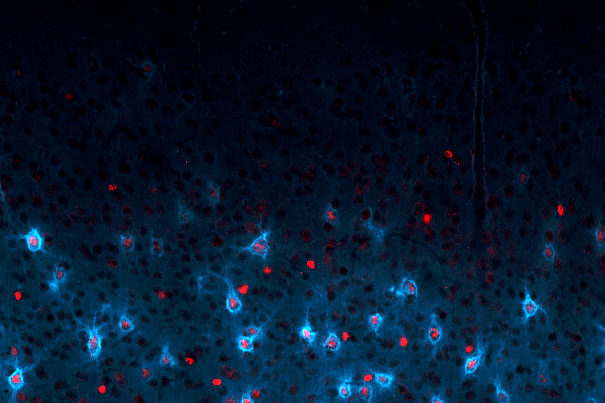
-
SEAS brings good things to light
By nestling quantum dots in an insulating egg-crate structure, researchers at the Harvard School of Engineering and Applied Sciences have demonstrated a robust new architecture for quantum-dot light-emitting devices (QD-LEDs).
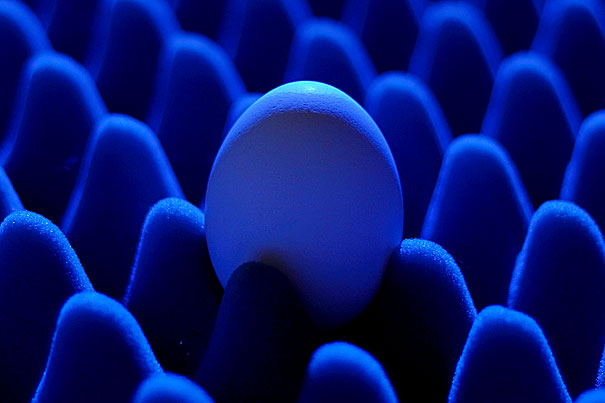
-
Nice guys can finish first
Nice guys can finish first — a new paper, published in the Proceedings of the National Academy of Sciences, has found that complex social networks like those of everyday life encourage members to be friendlier and more cooperative, with the possible payoff coming in an expanded social sphere. The study said selfish behavior can lead to an individual being shunned from the group and left — literally — on his or her own.
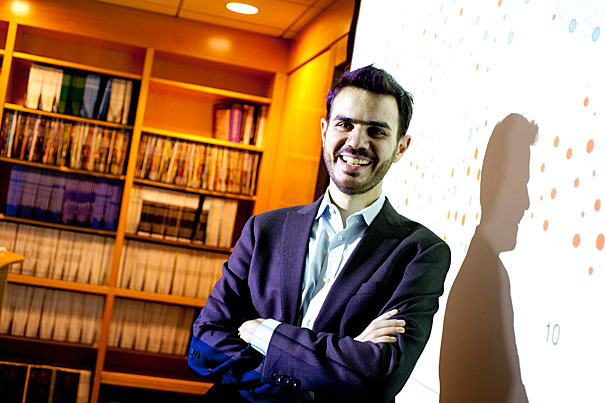
-
Growing strong
Steven Wofsy and Andrew Richardson discuss New England’s still-growing forests and their role as a buffer against the effects of climate change.
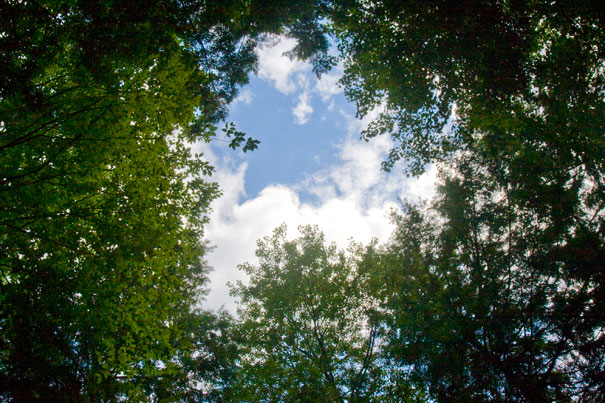
-
America’s first time zone
The Harvard College Observatory built its foundation in the mid-1800s, after an epidemic of train wrecks prompted the railroads to seek a regional standard for greater accuracy and safety.
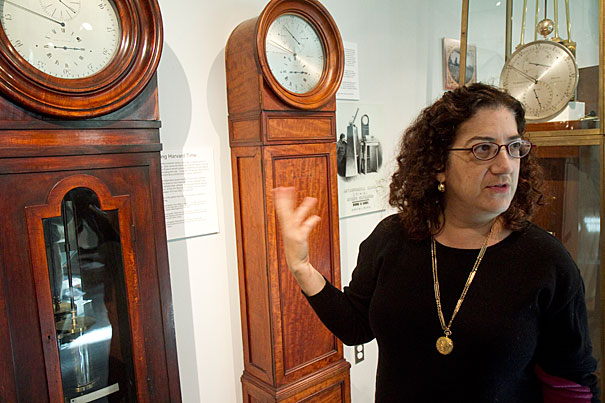
-
Bright idea
In a new paper, Avi Loeb of the Harvard-Smithsonian Center for Astrophysics and Edwin Turner of Princeton University suggest a new technique for finding aliens: Look for their city lights.
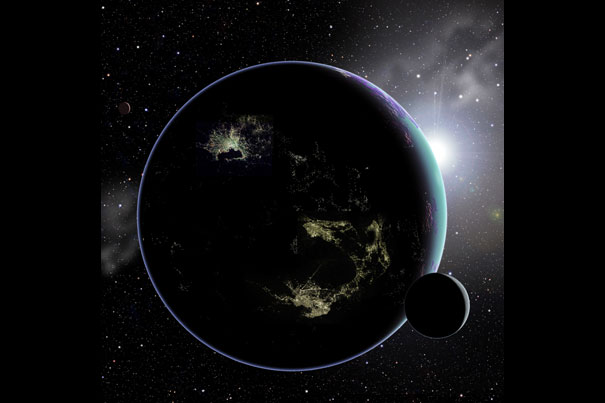
-
Tracing biological pathways
A new chemical process developed by a team of Harvard researchers may increase the utility of positron emission tomography (PET) in creating real-time 3-D images of chemical processes occurring inside the human body.
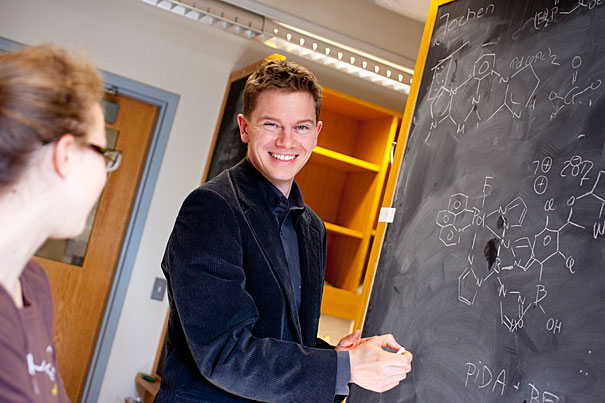
-
Students vs. computer
Harvard Business School and MIT Sloan students put IBM’s groundbreaking, “Jeopardy!”-winning computer to the test in a live match-up on Oct. 31. But outsmarting Watson, it turns out, is a not-so-elementary task.
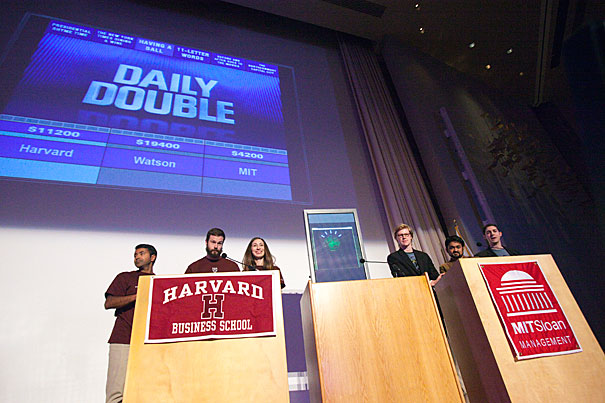
-
Crowdsourcing nutrition in a snap
Harvard School of Engineering and Applied Sciences’ PlateMate project proves that a well-managed crowd can play the role of a trained nutritionist.
-
New views of the cosmos
Though it won’t be completed until 2013, the Atacama Large Millimeter/submillimeter Array, a radio telescope observatory under construction in northern Chile, is already the most powerful and complex such facility ever built, and four astronomers from the Harvard-Smithsonian Center for Astrophysics are among those first in line to use it.

-
Woods, yes, but as before, no
The stunning regrowth of New England forests over the past century marks a conservation victory, but an Arnold Arboretum forest expert says there’s no turning back the clock to pre-colonial times. Today’s forests are a blend of native New England plants and invasive species, growing on a human-altered landscape.
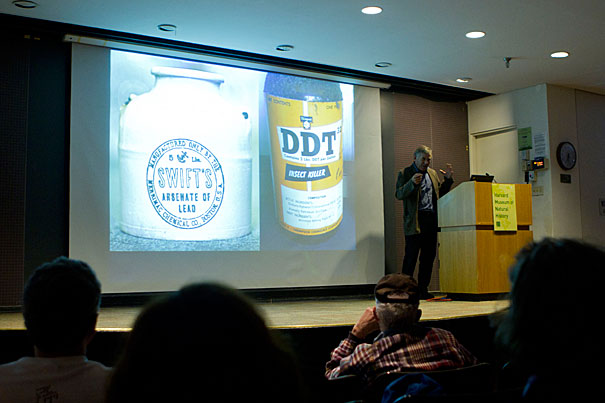
-
Weighing the risks of fracking
Susan Tierney, former assistant secretary for policy at the U.S. Department of Energy, discussed the environmental risks and potential benefits of shale gas extraction in a Future of Energy talk sponsored by the Harvard University Center for the Environment.
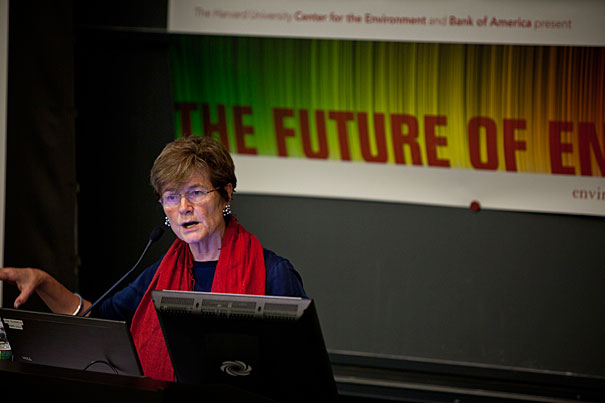
-
The podcast revolution
Two fellows at Harvard’s Berkman Center for Internet & Society revolutionized how people create and consume digital information.
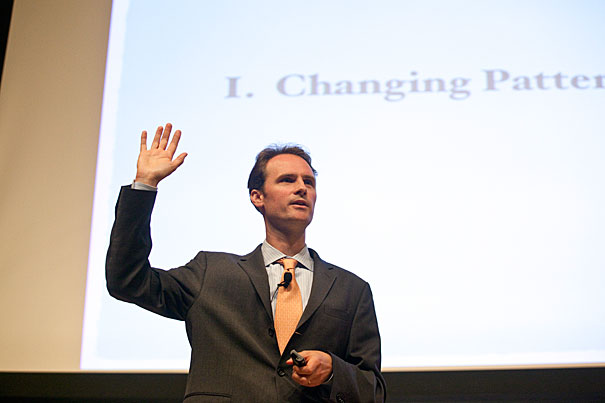
-
Fewer drops to drink
With water scarcity a growing worldwide worry, Harvard programs, faculty, staff, and students are exploring ways to protect precious supplies, both globally and on campus.
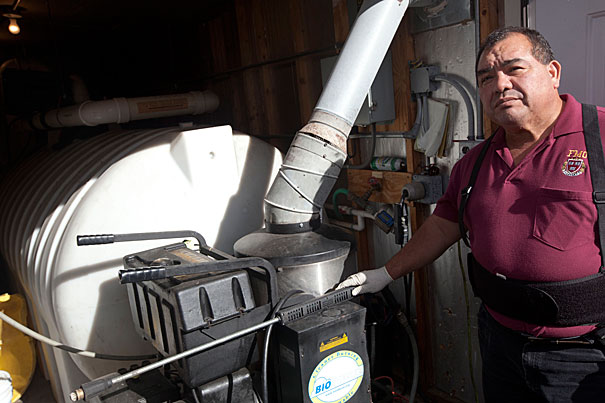
-
A tool to touch the sun
Harvard-Smithsonian Center for Astrophysics researcher Justin Kasper has designed an instrument that will peek out from behind a heat shield to touch the sun’s atmosphere on a NASA solar probe designed to get far closer to the sun than any before.

-
You’re not so anonymous
Prescription data stripped of identify information seems not so anonymous after all. Researcher Latanya Sweeney aims to make such personal data more secure and to provide recourse for people who are harmed by privacy breaches.

